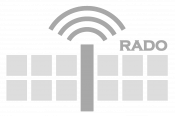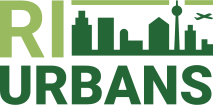RI-URBANS aimed to demonstrate how Service Tools (STs) from atmospheric Research Infrastructures (RIs) could be adapted and enhanced to better address the challenges and societal needs concerning air quality (AQ) in European cities and industrial hotspots. RI-URBANS responded to urgent needs to substantially reduce air pollution across the EU by providing enhanced AQ observations in support of advanced AQ policy assessment. The project developed and enhanced synergies between AQ Monitoring Networks (AQMNs) and RIs in the atmospheric domain, combining advanced scientific knowledge and innovative technologies to create pilot STs. These tools were intended to enhance the capacity of AQMNs to evaluate, predict, and support policies for mitigating urban air pollution. RI-URBANS deployed tools and information systems in the hands of citizens and communities to support decision-making by AQ managers and regulators. The focus was on ambient nanoparticles and atmospheric particulate matter—their sizes, constituents, source contributions, and gaseous precursors. The project evaluated novel AQ parameters, source contributions, and their associated health effects in order to demonstrate the European added value of implementing such STs. RI-URBANS built on existing initiatives for advanced research-driven AQ observations at supersites in European cities to provide innovative AQ STs. Five pilot implementations in nine cities demonstrated the capacity to integrate complementary STs in AQMNs and to manage data using FAIR (Findable, Accessible, Interoperable, Re-usable) principles. The project addressed all aspects of sustainability, including the efficient curation, preservation, and provision of access to data, as well as training and capacity building. It also focused on ensuring that the tools would continue to be used in the future. Finally, upscaling and long-term sustainability were pursued for the interoperable AQMNs-RIs services offered, using advanced instrumentation, modelling, source apportionment, integrated citizen observatories, and mobile measurements.
The project ran between 2021 and 2025.

